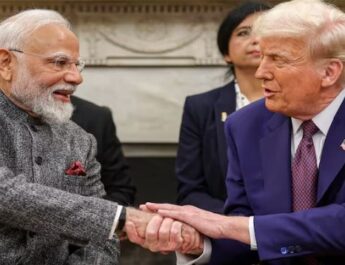The weather changed a bit, the children became ill. This is because of the flu and H3N2 influenza. H3N2 is a respiratory-related viral infection.
The way to avoid this is the flu shot ie the flu vaccine. Parents in our country are not much aware of the flu vaccine.
Today in the news of need, we will talk about flu shots and understand how to apply them to children.
Question: What are the symptoms of flu in children?
Answer:
- Headache
- Fever
- Cough
- running nose
- Vomit
- upset stomach
- sore throat
Question: What is the flu shot or vaccine?
Answer: Flu shot or flu jab is a vaccine that protects our body from the influenza virus.
After getting this vaccine, antibodies against the influenza virus are formed in the body.
Due to this, the immunity system of the body develops even before the virus attacks the body and we are saved from falling sick by 60% to 70%.
Question: Who can take it and when is it right to take it?
Answer: Small children, the elderly, people with weak immunity, or people suffering from any serious illness should get the flu vaccine.
A new version of the flu shot comes out every year between September-October and March-April.
After this, taking it will reduce the effect of changing weather and influenza on you.
Question: At what age should children get the flu vaccine ie flu shot?
Answer: According to the Indian Academy of Paediatrics, it is necessary for all children in the age group of 6 months to 5 years to get the flu vaccine once in a year.
Question: How is the flu shot given?
Answer: The flu vaccine is usually given by injection in the upper arm.
There is no special pain in it either. Shake your hand before getting a flu shot.
Keep moving your hand lightly even after taking the shot. This will reduce the pain a bit.
Question: Are the corona vaccine and the flu vaccine the same?
Answer. No, These two are different. Those who are thinking that the Covid vaccine will save them from the flu, are wrong.
The two diseases are not the same. When the disease is not the same then the vaccines will also be different.
Therefore, to prevent influenza, one has to get the flu vaccine.
Question: Why is it necessary to get the flu vaccine every year?
Answer: Flu viruses keep on mutating. Every year their new strain comes to the fore.
Last year’s vaccine doesn’t protect you from this year’s virus, so every year a new vaccine comes out for the flu.
Applying this can avoid both viral and seasonal infections.
Question: How does the flu vaccine work?
Answer: The flu vaccine creates antibodies in the human body. This helps in increasing immunity.
The Flu vaccine contains a protein that prevents seasonal diseases from occurring.
Question: Why do some children need to get the flu vaccine twice a year?
Answer: This happens only in two cases…
Children who are younger than 8 years old and have not had the flu vaccine before need two shots in the first year. There should be a gap of at least 28 days between both vaccines.
Some children’s immunity remains weak as soon as they are born. Such children are given two vaccines in the first year of onset.
Question: Will the flu vaccine be administered in a government hospital or a private hospital?
Answer: The flu vaccine is not available in every government hospital. But it is used in big hospitals like AIIMS and mostly in private hospitals.
Question: How much will it cost to get this vaccine?
Answer: The starting price of this vaccine is 1000 rupees. Its price varies according to the city, hospital and company.
Question: Can there be any side effects after taking the flu vaccine?
Answer: Yes, there are some minor side effects…
- There may be pain and swelling at the place where the vaccine was given.
- Pain and strain may be felt in the muscles.
- Headaches may also occur.
- Fever may occur.
- Runny nose or allergies may occur.
- Note: Some people may feel swelling in the body, shortness of breath, increased heart rate, or weakness, in which case contact the doctor immediately.
Question: Is there any way to prevent children from getting flu infections?
Answer: If some things are kept in mind then you can try to save the children. As-
- Don’t let children be around sick people.
- If someone in the class has an infection, the school administration should be informed about it.
- Tell children to cover their mouths with their hands or tissue while sneezing or coughing.
- Keep washing your hands from time to time.
- Explain to the children about social distancing.
- Forbid children to repeatedly touch their mouths and eyes.




